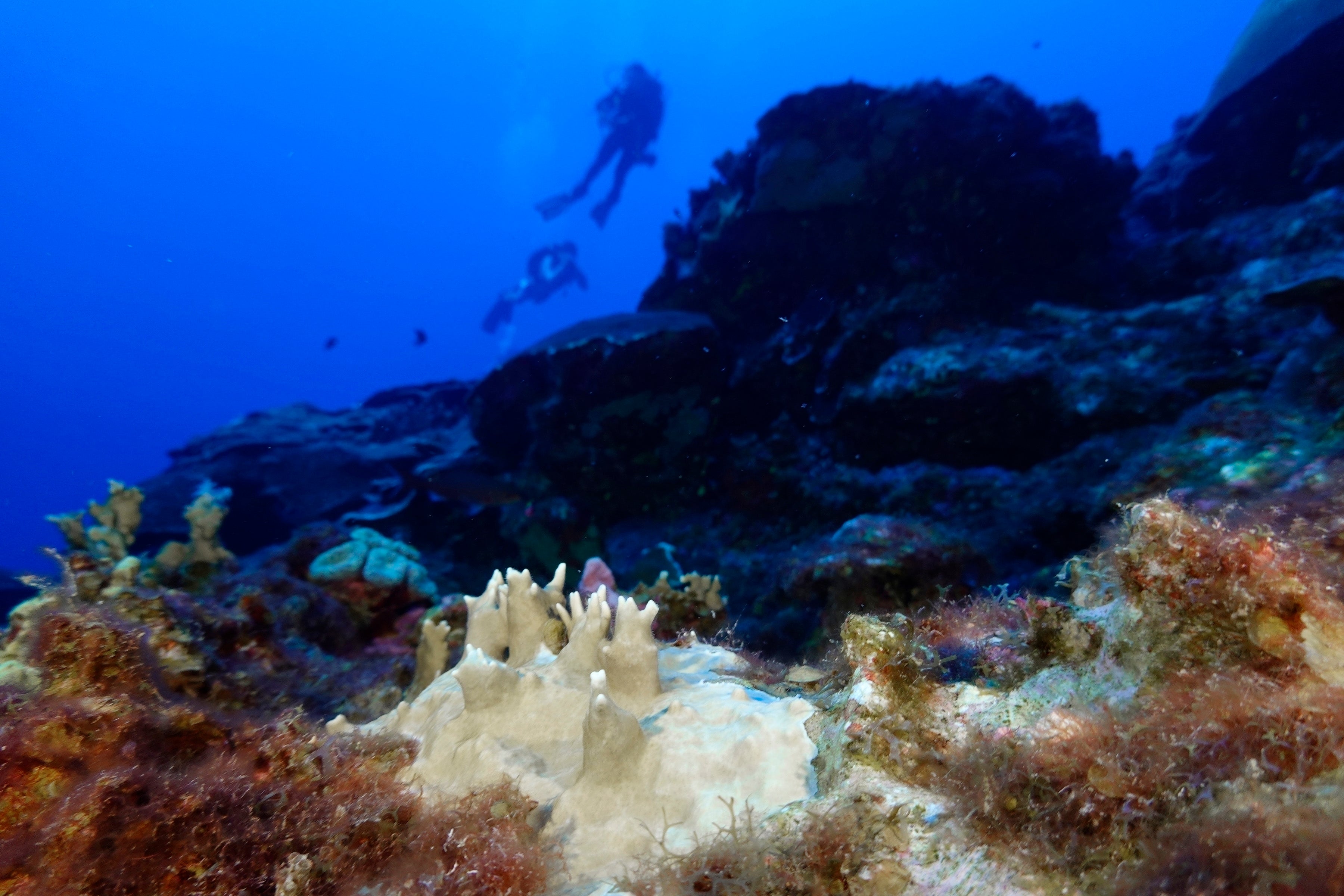Experts say coral reef bleaching near record level globally because of 'crazy' ocean heat
Scientists say temperatures that have gone “crazy haywire” hot, especially in the Atlantic, are close to making the current global coral bleaching event the worst in history

Ocean temperatures that have gone “crazy haywire” hot, especially in the Atlantic, are close to making the current global coral bleaching event the worst in history. It's so bad that scientists are hoping for a few hurricanes to cool things off.
More than three-fifths — 62.9% — of the world's coral reefs are badly hurting from a bleaching event that began last year and is continuing. That's nearing the record of 65.7% in 2017, when from 2009 to 2017 about one-seventh of the world's coral died, said Derek Manzello, coordinator of the National Oceanic and Atmospheric Administration Coral Reef Watch Program.
When water gets too hot, coral, which are living creatures, bleach and sometimes die.
In the Atlantic, off the Florida coast and in the Caribbean, about 99.7% of the coral reefs have been hit with "very very severe'' losses in staghorn and elkhorn species, Manzello said Thursday in NOAA's monthly climate briefing. Sixty-two countries are seeing damaged coral, with Thailand shutting off a tourist-laden island to try to save the coral there.
Meteorologists say a La Nina — a natural cooling of parts of the Pacific that changes the weather worldwide — is forecast to develop soon and perhaps cool oceans a bit, but Manzello said it may be too little and too late.
“I still am very worried about the state of the world's coral reefs just because we're seeing things play out right now that are just very unexpected and extreme,” Manzello said.
“This wouldn't be happening without climate change. That's basically the cornerstone of all the ocean warming we're seeing,” Manzello said. But on top of that are changes in El Nino, the reverse of La Nina and a natural warming of ocean waters; reduced sulfur pollution from ships and an undersea volcano eruption.
Former top NASA climate scientist James Hansen said “acceleration of global warming is now hard to deny" in a new analysis and statement Thursday.
For coral, it comes down to how hot the water is and “things have just gone crazy haywire with ocean temperatures in the last year,” Manzello said. He said hurricanes bring up cool water from deep and benefit coral reefs if they don't hit them directly.
“Hurricanes can be devastating for reefs,” Manzello. “But in the grand scheme of things and given the current situation we are in on planet Earth, they're now a good thing essentially, which is kind of mind-blowing.”
On Wednesday, parts of the Atlantic where hurricanes often develop had an ocean heat content — which measures water warmth at depths — equivalent to mid-August, said hurricane researchers Brian McNoldy at the University of Miami and Phil Klotzbach at Colorado State University.
The world's oceans last month broke a record for the hottest April on record. It was the 13th straight month global seas broke records, and because the oceans are slow to cool or warm, more records are likely, said Karin Gleason, NOAA's climate monitoring chief.
Coral reefs are key to seafood production and tourism worldwide. Scientific reports have long said loss of coral is one of the big tipping points of future warming as the world nears 1.5 degrees Celsius (2.7 degrees Fahrenheit) of warming since pre-industrial time. That's a limit that countries agreed to try to hold to in the 2015 Paris climate agreement.
“This is one of the most biodiverse ecosystems on the planet,” said Andrew Pershing, a biological oceanographer who is vice president for science of Climate Central. “It's an ecosystem that we're literally going to watch disappear in our lifetimes.”
___
Read more of AP’s climate coverage at http://www.apnews.com/climate-and-environment
___
Follow Seth Borenstein on X at @borenbears
______
The Associated Press’ climate and environmental coverage receives financial support from multiple private foundations. AP is solely responsible for all content. Find AP’s standards for working with philanthropies, a list of supporters and funded coverage areas at AP.org.
Bookmark popover
Removed from bookmarks